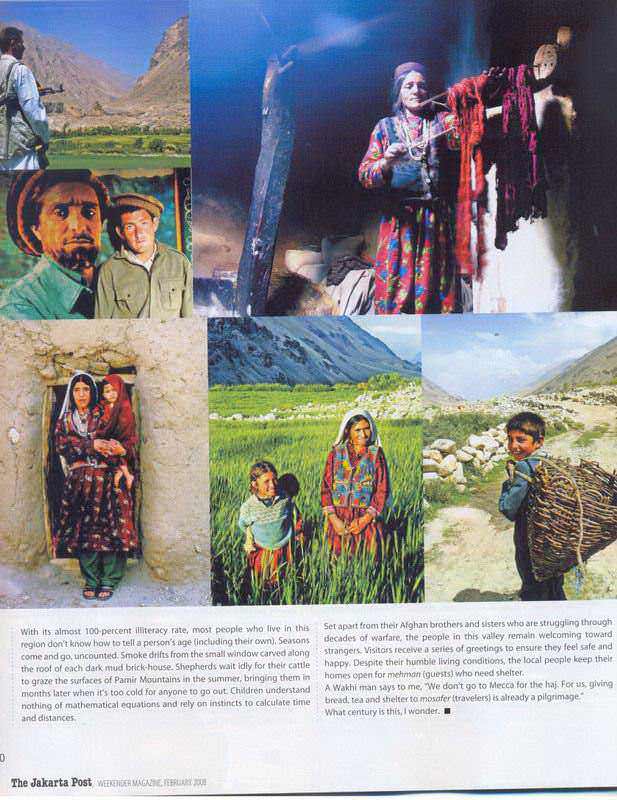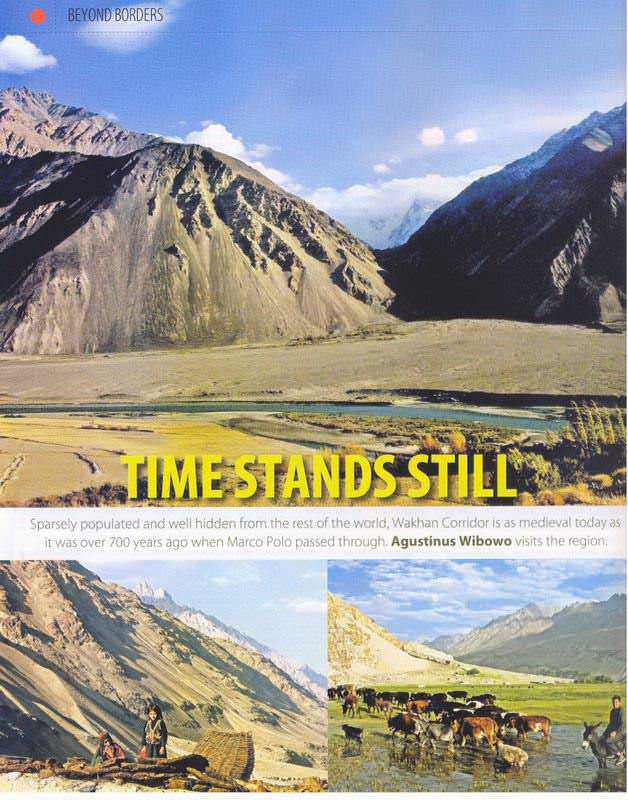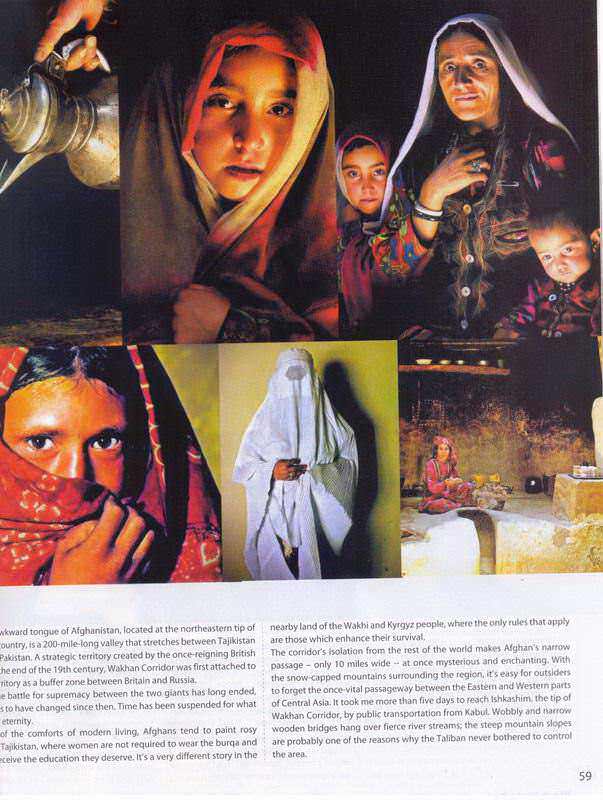Jakarta Post Weekender (2008): Time Stands Still
http://www.thejakartapost.com/weekender/0801beyond.asp
BEYOND BORDERS:
Time Stands Still
Sparsely populated and well hidden from the rest of the world, Wakhan Corridor is as medieval today as it was over 700 years ago when Marco Polo passed through. Agustinus Wibowo visits the region.
The awkward tongue of Afghanistan, located at the northeastern tip of the country, is a 200-mile-long valley that stretches between Tajikistan and Pakistan. A strategic territory created by the once-reigning British Empire at the end of the 19th century, Wakhan Corridor was first attached to Afghan territory as a buffer zone between Britain and Russia.
Though the battle for supremacy between the two giants has long ended, little seems to have changed since then. Time has been suspended for what seems like eternity.
Deprived of the comforts of modern living, Afghans tend to paint rosy images of Tajikistan, where women are not required to wear the burqa and children receive the education they deserve. It’s a very different story in the nearby land of the Wakhi and Kyrgyz people, where the only rules that apply are those which enhance their survival.
The corridor’s isolation from the rest of the world makes Afghan’s narrow passage – only 10 miles wide – at once mysterious and enchanting. With the snow-capped mountains surrounding the region, it’s easy for outsiders to forget the once-vital passageway between the Eastern and Western parts of Central Asia. It took me more than five days to reach Ishkashim, the tip of Wakhan Corridor, by public transportation from Kabul. Wobbly and narrow wooden bridges hang over fierce river streams; the steep mountain slopes are probably one of the reasons why the Taliban never bothered to control the area.

With its almost 100-percent illiteracy rate, most people who live in this region don’t know how to tell a person’s age (including their own). Seasons come and go, uncounted. Smoke drifts from the small window carved along the roof of each dark mud brick-house. Shepherds wait idly for their cattle to graze the surfaces of Pamir Mountains in the summer, bringing them in months later when it’s too cold for anyone to go out. Children understand nothing of mathematical equations and rely on instincts to calculate time and distances.
Set apart from their Afghan brothers and sisters who are struggling through decades of warfare, the people in this valley remain welcoming toward strangers. Visitors receive a series of greetings to ensure they feel safe and happy. Despite their humble living conditions, the local people keep their homes open for mehman (guests) who need shelter.
A Wakhi man says to me, “We don’t go to Mecca for the haj. For us, giving bread, tea and shelter to mosafer (travelers) is already a pilgrimage.”
What century is this, I wonder.



Mas Agus, saya pengemar anda yang selalu membaca cerita anda di Media Kompas, saya salut atas keberanian anda mengelilingi Negara Asia. balas surat Ke Email saya, dan salam kenal, terima kasih.
bagus teman, bagus sekali…